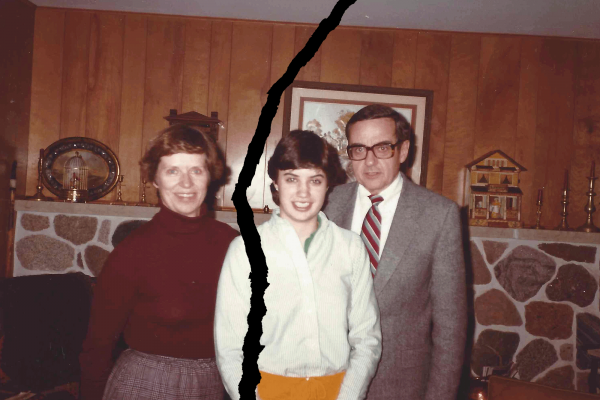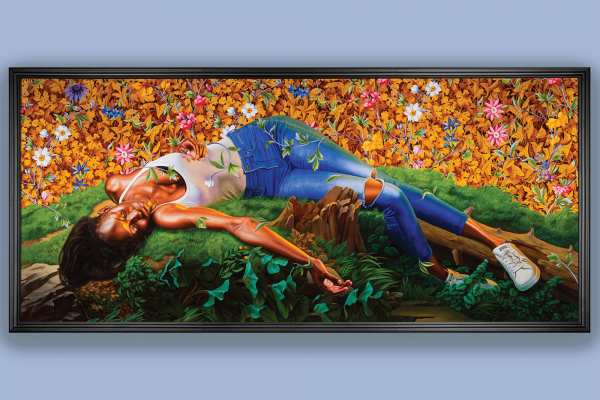My first experiences of Christian sacraments, including baptism and the Eucharist, were mysterious and somewhat confusing. As a Catholic little girl, I didn’t remember my infant baptism and could never quite wrap my head around eating Jesus’ flesh and drinking his blood. What’s more, these solemn events happened within the confines of a giant, cavernous church — a place where I had to be still, quiet, and serious. During weekly Mass, I learned implicitly from the nuns that reverence and fun do not go together.
I understood these sacraments were important for a life of faith, and as I grew older, I learned to appreciate the embodied practices of breaking bread, baptism, pilgrimage, and anointing with oil. As a kid, however, these practices made me feel that God was cold and remote, just like all the rigid statues of the saints who peered down at me during Mass with somber faces. They failed to engage my heart and mind as well as my body.
The one Christian tradition I understood was the sung liturgy of Las Posadas. Every December, Las Posadas invites participants to become pilgrims on a journey, reenacting the long-ago story of Joseph and Mary seeking shelter, or posada, as Mary’s belly swells with the imminent birth of Jesus. Unlike other liturgies, Las Posadas never took place inside the church — and it still doesn’t. The entire drama of the holy parents’ search for shelter takes place in neighborhood streets as the candle-carrying procession, often in costume, knocks on neighbors’ doors seeking posada. They sing, but at each door, everyone is turned away…
Representing Joseph and Mary, the pilgrims outside seeking shelter sing:
Venimos rendidos (We are worn out)
desde Nazaret, (coming from Nazareth.)
yo soy carpintero (I am a carpenter,)
de nombre José. (Joseph by name.)
The neighbors inside, who represent the innkeeper:
No me importa el nombre, (I don’t care about your name,)
déjenme dormir, (Let me sleep,)
pues que yo les digo (because I already told you)
que no hemos de abrir. (we shall not open up.)
… until the last home. There — finally! — the doors swing open for Mary and Joseph, and we celebrate with traditional foods, candy, and piñatas.
As an adult I still love the accessibility of Las Posadas throughout many Latin American countries and among Latine immigrants in the U.S. It doesn’t matter if you can read or speak Spanish; you can still understand what’s happening, marching along with the procession and celebrating at the end-of-evening party. Even at the darkest moment in the liturgy, when the innkeeper threatens Mary and Joseph with violence, everyone knows how the story will end: with a joyful entry and, eventually, the birth of Jesus who brings the hope of peace and justice into a jaded world. Everything about the experience — the slow walk through the neighborhood, the cold December air on your face, the singing of the liturgy — invites you to join this sacred story of hope.
This past summer when I was in Nicaragua, I learned that President Daniel Ortega had banned many of the public street processions that are key parts of Holy Week celebrations for many Catholics on Good Friday. His actions followed growing tension between his administration and the Catholic Church, which has been critical of Ortega’s increasingly autocratic government. In August of this year, he banned the entire Jesuit order from Nicaragua and confiscated most of their property.
I visited several towns boasting enormous Catholic churches, but they were all closed, even to visitors — a result of Ortega’s crackdown on the Catholic Church. They stood like lonely and forgotten ruins in the town squares. Having never felt especially close to God in church buildings, I did not miss them other than as architectural specimens. But I did wonder and grieve for the people who are denied public gatherings and expressions of faith.
After all, this is the power of Holy Week processions and Las Posadas: These liturgies are not just traditions, but a way to live into the hope that burst into the world with Jesus’s birth and resurrection. And in these tense and tender times, I love that a tradition embodying that hope doesn’t require us to go to a particular building or even have a clergy person. It’s hard to hold on to hope amid the ongoing war in Ukraine, the invasion and bombing of Gaza, and the rise of fascism around the world threatening democracies many of us were sure would never fall. Yet amid all this, our faith passes through church doors and moves right into the streets of our neighborhoods! Emmanuel, God with us, isn’t born again in Mary, but in the hearts of all of those who await his arrival with hopeful expectation and joy as they reenact the story of his coming year after year.
This is what Las Posadas mean to me now: While I still look forward to the party and celebration, what they really provide for me is a reminder that hope is lived out in my body and not just in my head. During this advent season of mystery, wonderment, and waiting, I love participating in Las Posadas. They remind my tired body that hope lives.
Got something to say about what you're reading? We value your feedback!







